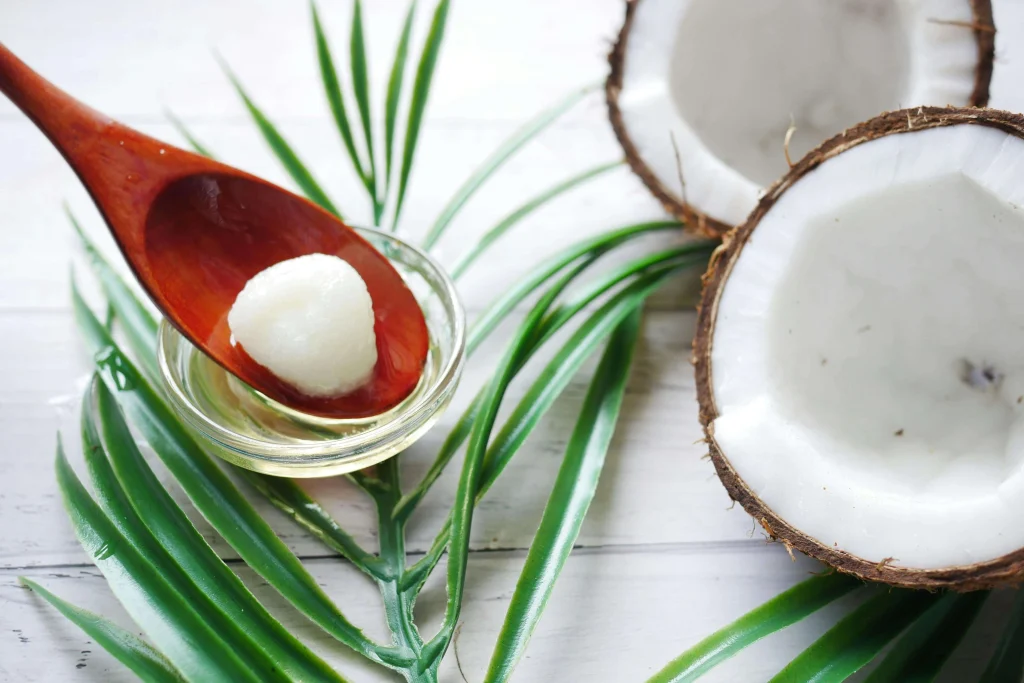Coconut oil is a versatile and popular ingredient in cooking, baking, skincare, and hair care. Known for its numerous health benefits and unique flavor, coconut oil is a staple in many households. However, like any other food product, coconut oil has a limited shelf life. In this blog post, we will explore the factors that affect the shelf life of coconut oil, how to properly store it, and practical tips to ensure its freshness and quality.

Content
Factors Affecting the Shelf Life of Coconut Oil
Coconut oil is a stable fat with a long shelf life compared to other oils. However, several factors can affect its quality and freshness over time:
1. Type of Coconut Oil
- Virgin coconut oil: This type is made from fresh coconut meat, and it retains more nutrients and antioxidants, giving it a longer shelf life.
- Refined coconut oil: This variety undergoes processing that removes impurities and extends its shelf life.
2. Quality of the Oil
- High-quality, cold-pressed coconut oil tends to have a longer shelf life due to minimal processing and better preservation of nutrients.
3. Storage Conditions
- Exposure to light, heat, air, and moisture can accelerate the oxidation process, leading to rancidity and spoilage.
- Proper storage is crucial to maintaining the freshness and quality of coconut oil.
Proper Storage Tips for Coconut Oil
To maximize the shelf life of your coconut oil and ensure its quality, follow these practical storage tips:
1. Store in a Cool, Dark Place
- Keep coconut oil away from direct sunlight and heat sources to prevent oxidation.
- Store it in a cool pantry or cabinet away from the stove or oven.
2. Use Airtight Containers
- Transfer coconut oil to a clean, airtight container to minimize exposure to air and moisture.
- Ensure the lid is tightly sealed to prevent contamination.
3. Avoid Temperature Fluctuations
- Keep coconut oil at a consistent temperature to prevent it from melting and solidifying repeatedly, which can affect its quality.
4. Check for Signs of Spoilage
- Inspect the coconut oil for any changes in color, texture, or smell.
- Discard if you notice any off-putting odors or flavors, as these are signs of rancidity.
5. Refrigeration
- While not necessary, storing coconut oil in the refrigerator can extend its shelf life, especially in warm climates.
- Note that refrigerated coconut oil may solidify, but it will return to its liquid state at room temperature.
How Long Does Coconut Oil Last?
The shelf life of coconut oil varies depending on the type, quality, and storage conditions. Here are some general guidelines:
- Unopened coconut oil: Can last up to 2 years or more if stored properly.
- Opened coconut oil: Typically remains fresh for about 6 months to 1 year, but this can vary.
- Refrigerated coconut oil: Can last up to 3-4 years if stored correctly.
It’s essential to check the expiration date on the packaging and use your judgment to determine if the coconut oil is still suitable for consumption.
Conclusion
In conclusion, understanding the shelf life of coconut oil and how to store it properly is key to maintaining its freshness and quality. By following the tips outlined in this blog post, you can prolong the shelf life of your coconut oil and enjoy its benefits in various applications. Remember to store coconut oil in a cool, dark place, use airtight containers, and monitor for any signs of spoilage. With proper care and attention, your coconut oil can remain a valuable ingredient in your kitchen and beauty routine for an extended period.

Jesus is a health blog author who has been writing about nutrition, fitness and healthy living for over 10 years. He also loves to run, hike and bike with her wife.






